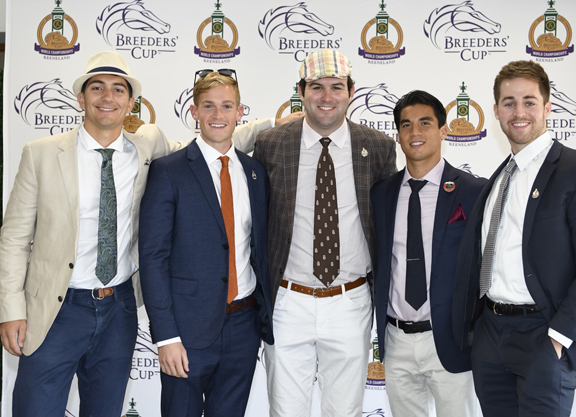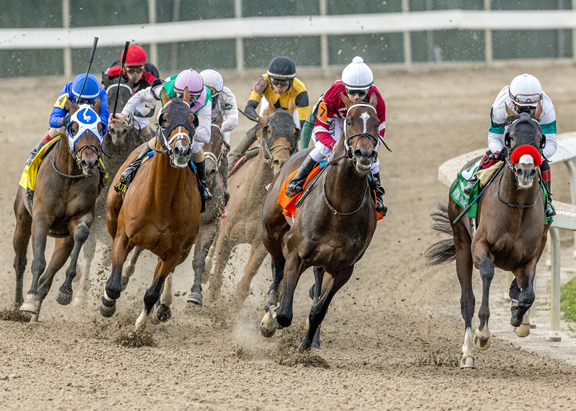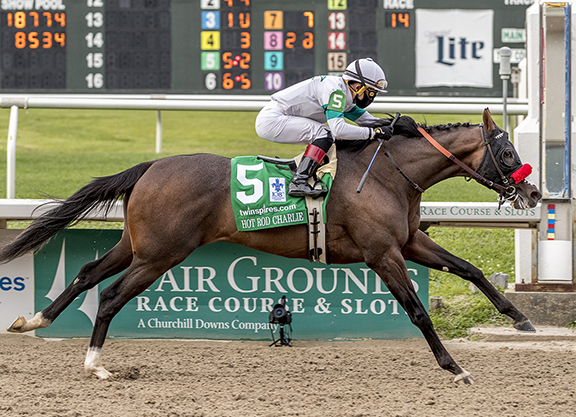By Chris McGrath
It's not what you would think. Not the invincible, fist-pumping, chest-bumping days. No, the real bond is forged exactly where the rest of us would least imagine—in the moments of disappointment, moments of doubt. That's where you really learn about each other.
“Honestly, thinking back, what I remember most is those bus rides back from games we lost,” says Patrick O'Neill. “And that's crazy to say. We were very competitive. Second or third, pretty much every year we played in the Ivy League. But it's those losses where you really get to know who you can trust; what people's characters are; who you can lean on when you play a bad game, or vice versa. Those are the memories that stay with you. Those were the times where I needed them, or they needed me. And we were always there for each other.”
But that kind of intensity, by definition, can't extend a lifetime. These were young men of elite accomplishment, in both intellectual and physical capacity; and they were entitled to corresponding ambition. When they left Brown University, they knew that the world would gradually have to look a little different: they would have to think about careers, courtship, maybe someday starting a family. And that implied a dread you would never want to admit to yourself, when still in your early twenties. What if life was never again to be lived in quite the same pitch?
Patrick wouldn't presume to compare what they had shared to military service. He has too much respect for veterans to do that. But maybe it's as close as you can get, outside uniform and within the law.
“Football is violent, it's aggressive, oftentimes scary out there,” he reflects. “And you grow this brotherhood. 'I got your back, you got my back.' You have that competitive spirit. You win together, you lose together. We've seen each other cry, we've seen each other get hurt, we've seen each other triumph.

Dan Giovacchini, Eric Armagost, Alex Quoyeser, Patrick O'Neill and Reiley Higgins at the Breeders' Cup | Patrick O'Neill photo
“So we have these four amazing years where we spend literally every waking minute with each other. Woke up in the same house, went to work out together, breakfast together. Often you're in the same classes. Film studies together, football practice together. And, at the end of the day, fun together as well.
“And then you graduate, and go off into the real world. Now each one of us, we're very fortunate. We got the jobs we worked so hard for, through college and internships and all through our education. But, to some degree, there's this hole in your life.”
So they decided to form a racing partnership, just to keep those precious ties from getting too loose. It wasn't even Patrick's idea. The other guys always knew that he was mad about the ponies. During their senior year, he insisted on adding TVG to their cable package, and they knew that his uncle trained out in California. In fact, he was still in his freshman year when Doug O'Neill and his brother and assistant Dennis won the Kentucky Derby itself with I'll Have Another (Flower Alley). The year after Patrick graduated, they did it again with Nyquist (Uncle Mo). So this, his friends saw, was not just a quirky obsession; this was pretty much a family business.
Not for his dad, admittedly. As the oldest of four brothers, Dave O'Neill had seen the other side of the coin. Their father—Patrick's grandfather, that is, for whom he is named—had an infectious enthusiasm for racing back in Detroit, but equally contagious were his wagers. One would lead to another, and the oldest of his boys learned a wariness of the track. Doug and Dennis saw only the excitement, and after graduating from high school they were immediately walking hots. But Dave felt that someone in the family should maintain an even keel. He went to the University of Michigan through a caddie scholarship, and then broke down the next door with a great job in telecommunications out west.
But life being what it is, the brothers received very different dividends for their staking plan in the gamble of life. Dave grew sick of corporate America after the telecoms sector crashed in the early 2000s and, since Patrick's mom Margie was originally from Hawaii, that's where they moved for a new start. On the flip side, Doug and Dennis went from winning $8,000 claimers at Bay Meadows to transforming Lava Man (Slew City Slew) into a triple Hollywood Gold Cup winner with a ticket to the Hall of Fame. Patrick was captivated, albeit from afar now that they had moved to islands 3,000 miles away.
Tragically, his other uncle Danny died of melanoma at just 38; and then his father was diagnosed with a similar condition in his mid-50s. They gave him maybe six months or so. Patrick was by then at Brown, literally half a world away from Hawaii, and that was a lot to deal with.
“But he ended up making it two years,” Patrick says. “And I could not be more thankful to him for making my graduation. What an amazing brother he was to my uncles, husband to my mom, and dad to myself and my sisters. Looking back, yes, there was a lot going on. But I was very blessed to have such great support around me, with the O'Neills and my mom's side as well, and then all these amazing friends. We remember him, and he's definitely on this ride with us today.”

Hot Rod Charlie (#9, right) wins the $1,000,000 Grade II Louisiana Derby at the Fair Grounds | Hodges Photography
Because some ride it's turning out to be. As we've noted already, it was four of those amazing friends—Eric Armagost, Dan Giovacchini, Reiley Higgins and Alex Quoyeser—who had to talk Patrick into investing in his uncle's barn. Patrick agreed that the football brotherhood had to stick together. They had all ended up on the West Coast, but obviously they were no longer living in each other's pockets. A couple of years ago they had a reunion, and Patrick organized a backside pass at Del Mar. They had a tour of the barn, met Doug and Dennis, cheered home a winner for the team.
“And they were like, 'Wow, this sport is incredible!'” remembers Patrick. “And being smart, career-oriented guys, they said, 'Look, you kind of have an inside path in a lot of this: you know all about breeding, you have this great connection through Doug and Dennis. We should think about creating a syndicate.' And for me personally, knowing my grandpa's story, I was pretty adamant against it. But slowly they convinced me. But I said, 'Well, if we're going to do this, we're going to do it the right way. We're going to create an LLC; we're going to have an operating agreement; we're going to treat it like a diversified portfolio, and leverage Dennis at the sales, and Doug and Team O'Neill for the training.'”
They started with a share in a couple of OBS juveniles. One broke exactly even. The other “we got totally crushed on.”
“So we probably had one bullet left, in terms of continuing our business,” Patrick recalls. “And we got a call that fall from Dennis, at the Fasig-Tipton October Sale. As you know, typically Dennis doesn't buy yearlings. But he said, 'I'm looking at this colt, he's a half to Mitole (Eskendereya), and he's gorgeous. He's not just a sprinter: he's athletic, he's everything I look for in a horse.'”
There was a leg left, would the boys be interested? This was just before the Breeders' Cup, where Mitole would go on to nail down a divisional title. His sibling should have been unaffordable but—”all credit to Dennis”—they got him for $110,000. If his sire wasn't especially commercial, great: his racing career was a perfect template. Just like Oxbow, Hot Rod Charlie took four attempts to break his maiden but is now legitimately on the Classic trail.
When he sneaked into the GI Breeders' Cup Juvenile field, they looked at the pari-mutuel board and saw that “Chuck”, as they call him, was 94-1. They shrugged. What a blast, just to be there. Then they watched in astonishment as Hot Rod Charlie cruised into contention and then took over at the top of the stretch. Though ultimately just caught by Essential Quality (Tapit), he pushed the champ all the way. “We were going berserk,” says Patrick. “We were hitting each other, jumping, chairs were getting thrown.”
So who still missed the football field now? Suddenly this could even be a Kentucky Derby horse. True, “Chuck” was beaten on his return in the GIII Robert B. Lewis S. and, albeit he finished really well, the two who held him didn't do much for the form next time. But then, last Saturday, Hot Rod Charlie won the longest trial of all in the GII Louisiana Derby. The giant shadow of Midnight Bourbon (Tiznow) loomed over their frontrunner turning in, but plucky “Chuck” just kicked again and saw him off decisively. Next stop Louisville, first Saturday in May.
“In the paddock Midnight Bourbon looked incredible, as Steve Asmussen's horses usually do,” Patrick reflects. “And when he ranged up, I was like, 'Uh-oh, this is not good.' But our guy's just so tough. He doesn't care that he's a hand shorter than Midnight Bourbon. All he knows is he wants to get to that finish line first.
“Doug and his team have done such an amazing job with him. In the Lewis, at a mile and 1/16th against two really good horses, he was probably 75 percent fit after 90 days off. Then with the seven weeks to this race, he'd never been training better. He's always been a lean horse but he's finally filling out.”
One thing Patrick can't stress enough. His guys only have one leg in this horse, and would hate for their youth and enthusiasm to distract too much attention from their more seasoned partners. He knows that for Bill Strauss, and the Roadrunner syndicate of Greg Helm, a bone fide Derby contender crowns much a longer and deeper investment in the game—not just financially, but in terms of their own passion and commitment.
“They could very much have been like, 'Oh my God, who are these young rascals?'” Patrick says. “And they could not have been cooler or greater. They say, 'I love this sport. I want it promoted to the younger generation. You guys are doing that, and should do it as much as you can. Keep going.' These are two amazing individuals. And that's what happens, when you go on a ride like this. From people you didn't know at all, you end up with friends you'll have forever. Greg and Bill will be mentors to me and my friends for the rest of our lives.”
Strauss joined the youngsters and their families and girlfriends to celebrate in New Orleans last Saturday, and whatever happens in Louisville the whole group will be enjoying every second. As the Turf evangelist within his group, moreover, Patrick has loved to see the passion and the knowledge bloom among his novice buddies.
“That's my inside joke to them,” he says with a laugh. “I tell them, 'You guys are screwed for the rest of your lives.' You're going to have this ride. And then we're all going to be chasing this feeling, and this type of horse, for the next 20 years. So I'm able to tell them how lucky they are. They ask so many questions, like who is this Tapit guy who wins every race? And what are these Ragozins, and Beyers, and Thoro-Graphs? But it's great, for me personally, because I love this sport so much and having great young talent come into it is huge.
“No joke, it gives me chills, to see some of the best friends in my life so happy right there in the winner's circle. That's one of the best feelings in the world. This sport that I grew up in, that means so much to my family—and they are hooked. It shows you what a great world this is, and that if we market it properly, who knows what it could be for this next generation?”
As the one who understands the odds still to be overcome, Patrick is trying not to think too far ahead; especially with the Breeders' Cup this year returning to what is nowadays his local track. He knows to take everything one step at a time. But “Chuck” has the potential to be a precious vehicle for the whole industry. For one thing, as the final bequest of Edward A. Cox Jr., he already has a bunch of people in his corner—from his late breeder's grandchildren (well over three dozen of those, at the last count) to that old sage Bill Landes at Hermitage Farm. Bob and Sean Feld, too, will be hoping that Hot Rod Charlie can continue to magnify the skill with which they pinhooked a $17,000 short yearling. But the biggest deal of all is if young people on the outside see just how much fun these boys are having.
With such momentous stakes, then, they do well to remember the lessons learned together on the football field. To some people, sport is too frivolous to justify the emotion and money that many of us pour into it. But we only do that because it really teaches us about life, and about each other; because we know how true a mirror it holds up to the world.
“I don't even know if this whole thing is a million-to-one,” Patrick says. “It might be more like a billion-to-one. We really try to keep each other's feet on the ground. That's the input that I always received from my dad, from Doug and Dennis: about all the ups and downs in life. I respect LeBron James so much, but he's perfect physically, he's super smart and an amazing athlete. But then you also have guys like Steph Curry, who's six three. They figure it out. Those are the people that resonate because they have to get through tough experiences, tough times.
“So yes, sport is an amazing analogy for life. And if you can properly navigate college sports, it helps you to deal with other trials and tribulations. So with Hot Rod Charlie, obviously I hope he never loses another race again. But we'd be foolish to think that will be the case. There will be a time when he doesn't run to his best, and we're going to sit there and have five seconds to sulk about it. But then we're going to realize that life goes on, and that we still have each other. Just like a loss in football. You keep moving forward. Because all the amazing experiences you're going through together are never going to be
Not a subscriber? Click here to sign up for the daily PDF or alerts.






